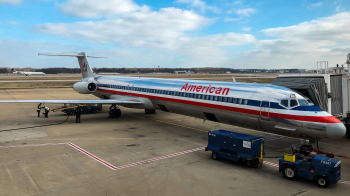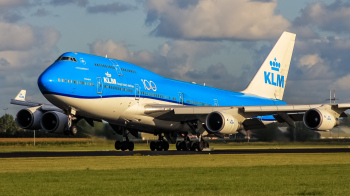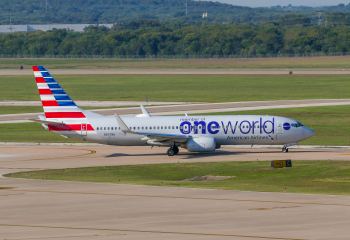Tucson International Airport (TUS) is a public airport located about six miles south of downtown Tucson, Arizona in the United States. It is owned and operated by the Tucson Airport Authority (TAA). The airport serves as the primary commercial and general aviation facility for the city, as well as a hub for the military, private and business aviation activities in Arizona. As of 2020, the airport had an average of over 70 daily departures and arrivals.

Originally named Tucson Municipal Airport, the airport was opened in 1929 with a single dirt runway. In the 1940s, the military began using the airport for World War II training and operations. The airport was then renamed Davis-Monthan Air Force Base, in honor of two Tucson-area pilots, Samuel H. Davis and Oscar Monthan, who were killed in action during World War I.
In the 1950s, after the Air Force left the airport, it was renamed Tucson International Airport and significant expansion began. The new and improved airport included two parallel runways, a new passenger terminal and a control tower. The airport's current name was chosen to reflect its international status and to emphasize the city of Tucson's growing importance as a global gateway city.
The airport code TUS is derived from the airport's official name. The T stands for Tucson, the US stands for United States. The code has been in use since the early 1970s and is also used on flight information screens and airport signage.
Today, Tucson International Airport is served by several major airlines, including American, United, Delta, Southwest, Alaska, and Allegiant. The airport provides non-stop flights to a variety of domestic and international destinations, including Los Angeles, San Francisco, New York City, Chicago, Dallas, Denver, Las Vegas, and Mexico City. On average, the airport has over 70 daily departures and arrivals, with over two million passengers traveling through the airport each year.
Tucson International Airport is also home to one of the busiest general aviation airports in the United States. The airport has two fixed-base operators (FBOs) that provide services from fueling and maintenance to charter flights and aircraft sales. In addition, the airport also has several aviation-related businesses and organizations, including air cargo companies, aircraft brokers, aviation schools, and flying clubs.
Tucson International Airport is an important hub for air transportation in the Southwest, providing a safe and efficient gateway to the region and beyond. With its convenient location and wide variety of services and facilities, the airport provides travelers with an ideal gateway to the city of Tucson and the surrounding region.





Comments